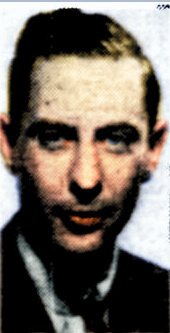The Pittsburgh Press (June 29, 1941)

RUSSIA IS STILL AN ENIGMA; TIME AND SIZE ARE FACTORS
By John T. Whitaker
Lisbon, June 28 –
With a standing peacetime army of 3 million and plans for expanding it to 12 million, Russia remains a question mark to military experts, and few of them – especially if they have been in the Soviet Union – would like to prophesy the course of Führer Adolf Hitler’s latest adventure in his ever-widening program of world conquest.
German generals are the exception, however, because I learn on good authority they expect to complete their campaign in four to six weeks.
This evidences an optimism which reminds observers that Dictator-Premier Joseph V. Stalin too felt pretty cocky a year and a half ago. The Kremlin then expected to force the collapse of Finland in exactly four hours.
In these days when total warfare involves total populations, time-tables are likely to backfire on the military gentry and, despite the fact that they have confidently launched the most audacious invasion of modern history, the Germans are likely to find that the sheer bigness of Russia is more than they had bargained for.
Incomprehensible size
The American can grasp the enormity of Russia but the average German, leaving his creek-like rivers and his garden-like fields, gasps that “there just ain’t no such animal.”
In each of my visits to the Soviet Union, that is what has impressed me the most. Russian rivers are big, like the Mississippi; Russian mud is black, sticky and deep, like the mud of Texas; the Russian mountains are as forbidding as the Rockies; the Russian steppes as vast as our own prairies, while the curiously nondescript races and nationalities which compose the polyglot union total 193 million souls.
That is a lot of people to butcher, even for Hitler’s experts.
It would seen plain from the plan for a quick blitz that the Germans expect to put the pincers on Moscow, and crush Stalin’s government and army simultaneously. Their swift columns, with a preponderant air escort, will try, meanwhile, to drive through the Ukraine to Baku oil. It is that easy, on paper, for the fastest maneuvering army in history, and the 11 autonomous Soviet republics are expected to fly apart.
The Germans may encounter several jokers, however. In the first place, the Russians have burned out a vast strip on the frontier and turned all collective farms into self-sufficient little forts designed to discourage the invader.
A natural barrier
In the second place, many of their war industries lie east of the Ural Mountains, which form a natural barrier 2,500 miles long. Even if the German campaign is successful, it should prove only the initial phase.
Standing behind the Urals, with vast industrial and raw material strength still in their hands, the Russians should be able to out-Chinese the Chinese in the kind of warfare the Japanese have found so distasteful.
Whether they call it Red Russia or Holy Russia, whether they think of themselves as sons of the Czar or pioneers of communism, the Russians will fight to rid their fatherland of invaders. My visits to Russia have convinced me that nationalism is a more vibrant force in Russia today than communism.
Since the Finnish war, Stalin has happily done away with the system of political commissars with army units. Instead of a disastrous dual command, Red Army units are now under army officers.
‘Purge’ defended
Many observers in Moscow have felt that the results of the purge within the army – as separate from its results in industry which has been badly disorganized – are exaggerated. One of the French military attachés once told me:
We “killed” 120-odd French generals in the First World War and our army was greatly improved.
I exclaimed:
You never murdered French generals!
Nop, but we relieved them of their commands. Stalin’s shooting of a general is just the Russian way of removing him. I think the Russian army is better for having had a number of incompetent generals killed.
I think the Russian army is no match for the German but Hitler’s generals had better watch out for the big question mark called Russia. Its very bigness is terrifying.